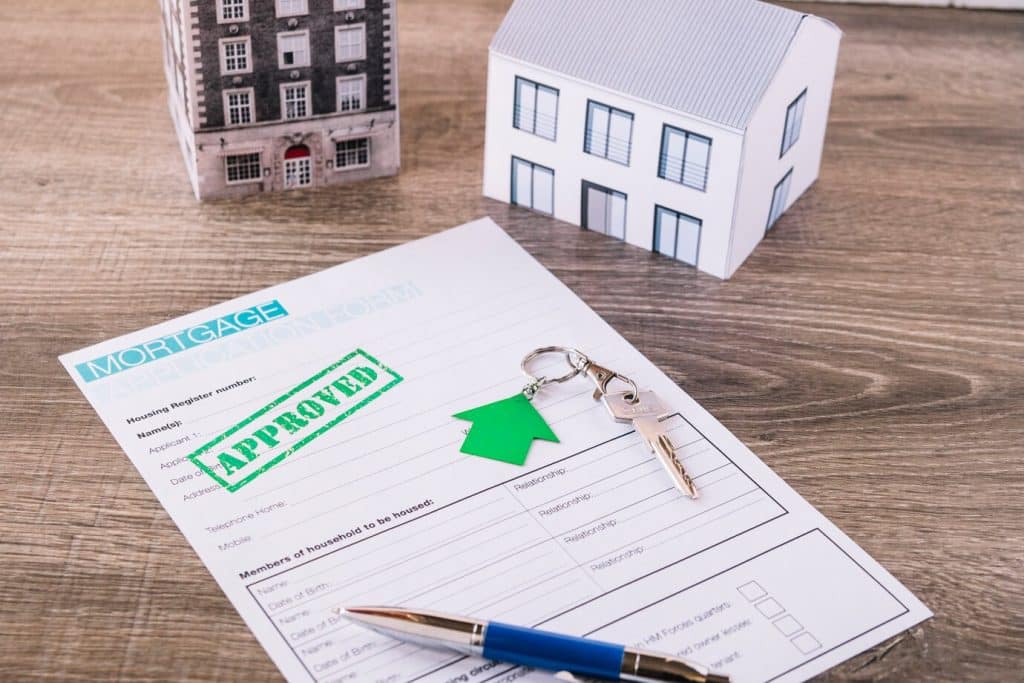Purchasing your first home is an exciting and significant milestone in life, but it can also feel overwhelming, especially when it comes to securing a home loan. For first-time homebuyers, the process can seem complex and filled with jargon, requirements, and paperwork. However, understanding the steps involved and having the right strategies in place can help streamline the home-buying experience and set you on the path toward homeownership with confidence.
In this guide, we’ll explore essential tips for first-time homebuyers looking for a home loan. From understanding your credit score to comparing loan options, navigating interest rates, and working with lenders, these tips will help you make informed decisions and secure a mortgage that fits your financial needs and long-term goals.
Key Takeaways
- Understand your credit score and work to improve it before applying for a home loan.
- Save for a substantial down payment to reduce your loan amount and avoid additional costs like PMI.
- Determine how much house you can afford based on your income, debts, and other financial responsibilities.
- Get pre-approved for a mortgage to streamline the buying process and make your offers more attractive to sellers.
- Compare multiple lenders and mortgage options to secure the best possible interest rate and terms.
Understanding the Home Loan Basics
Before diving into the tips for securing a home loan, it’s essential to understand the basics of a mortgage. A home loan is a type of financial product that allows you to borrow money from a lender to purchase a property. In return, you agree to repay the loan over a specified period, usually 15 or 30 years, with interest. The lender holds the title to the home until the loan is fully paid off.
There are several different types of home loans available, including:
- Conventional loans: Standard loans offered by banks and other financial institutions, typically requiring a 20% down payment and good credit.
- FHA loans: Government-backed loans that are ideal for first-time homebuyers with lower credit scores and smaller down payments (as low as 3.5%).
- VA loans: Loans backed by the Department of Veterans Affairs, available to military service members, veterans, and their families.
- USDA loans: Loans backed by the U.S. Department of Agriculture, available to buyers in rural or suburban areas with low-to-moderate incomes.
- Fixed-rate loans: Loans with a constant interest rate and consistent monthly payments for the entire loan term.
- Adjustable-rate loans: Loans where the interest rate changes periodically based on market conditions, often resulting in lower initial payments but more potential for increased rates in the future.
Knowing the types of loans available to you and which one aligns with your financial situation is the first step toward securing the right mortgage.
Top Tips for First-Time Homebuyers
Now that you have a basic understanding of what a home loan is, let’s dive into the top tips for first-time homebuyers who are looking to secure the best mortgage for their needs.
Check Your Credit Score and Improve It if Necessary
Your credit score plays a significant role in determining the interest rate you’ll be offered for a home loan. Lenders use your credit score to assess your creditworthiness and the level of risk associated with lending you money. Generally, the higher your credit score, the better the loan terms and interest rates you will receive.
Before applying for a home loan, check your credit score. The three major credit bureaus—Equifax, Experian, and TransUnion—offer free credit reports that you can access annually. If your score is lower than you’d like, consider taking steps to improve it before applying for a loan.
Here are a few ways to improve your credit score:
- Pay off outstanding debts: Paying down credit card balances, student loans, and other debts can improve your credit utilization rate, which directly impacts your score.
- Make timely payments: Ensure that all your bills, including credit cards and loans, are paid on time.
- Avoid opening new credit accounts: Applying for new credit lines can lower your score temporarily, so avoid doing this right before applying for a mortgage.
A higher credit score will not only help you secure a loan but also help you qualify for better interest rates, potentially saving you thousands over the life of the loan.
Save for a Down Payment
One of the biggest financial hurdles for first-time homebuyers is saving for a down payment. While many first-time buyers dream of putting down as little as possible, it’s essential to understand that the more you can afford to put down upfront, the more favorable your loan terms will likely be. A larger down payment means a smaller loan amount, which can lower your monthly payments and reduce the total interest paid over the life of the loan.
In general, you’ll need at least 3% to 5% of the home’s purchase price for a down payment if you’re applying for a conventional loan. However, many first-time homebuyers aim for a 20% down payment to avoid private mortgage insurance (PMI) and to get better loan terms.
If saving a 20% down payment seems daunting, consider these alternatives:
- FHA loans: These government-backed loans allow for down payments as low as 3.5%.
- Down payment assistance programs: Many states, counties, and cities offer down payment assistance programs, particularly for first-time homebuyers.
- Gift funds: Some lenders allow you to use gift funds from family members to help cover your down payment.
No matter the down payment amount, having a sizable down payment can help you secure better terms and avoid additional costs such as PMI.
Determine How Much House You Can Afford
Before applying for a home loan, it’s essential to have a clear idea of how much home you can afford. Many first-time homebuyers make the mistake of shopping for homes based on the highest loan amount they qualify for, without considering how much they can realistically afford to repay each month.
To determine how much house you can afford, consider the following:
- Monthly income: Calculate your gross monthly income and ensure that your mortgage payments don’t exceed 28% to 30% of your gross monthly income.
- Debt-to-income ratio: Lenders use your debt-to-income (DTI) ratio to assess your ability to repay the loan. Generally, a DTI ratio of 36% to 43% is considered ideal.
- Other costs: Remember to factor in other costs, such as property taxes, insurance, home maintenance, and utilities, in addition to your mortgage payment.
Online mortgage calculators can help you estimate how much house you can afford, based on your income, debts, and down payment amount.
Get Pre-Approved for a Mortgage

One of the best ways to start the home-buying process is to get pre-approved for a mortgage. A pre-approval letter from a lender shows sellers that you are serious about purchasing a home and have the financial means to back up your offer.
During the pre-approval process, the lender will evaluate your credit score, income, employment history, and overall financial health to determine how much they’re willing to lend you. The pre-approval letter will also outline the loan terms, including the maximum loan amount and interest rate you are eligible for.
Having a pre-approval letter not only gives you an idea of your budget but also helps streamline the home-buying process once you’ve found a home you want to buy.
Compare Lenders and Mortgage Rates
Not all lenders are the same, and it’s essential to shop around for the best mortgage rates and terms. Interest rates can vary significantly from one lender to another, and even small differences in rates can make a big difference in your monthly payments and the total cost of the loan.
When comparing lenders, consider the following:
- Interest rates: Even a slight difference in interest rates can affect your monthly payments and the total cost of the mortgage.
- Fees: Some lenders charge application fees, origination fees, and closing costs. Be sure to compare these costs across different lenders.
- Customer service: Choose a lender that offers excellent customer service and is responsive to your questions throughout the process.
Getting multiple quotes from different lenders will help you make an informed decision and ensure that you’re getting the best deal for your financial situation.
Consider the Total Cost of Homeownership
While it’s easy to focus on the upfront costs of purchasing a home, it’s important to consider the total cost of homeownership over time. Beyond the mortgage payments, there are other ongoing costs to keep in mind, including:
- Property taxes: These can vary depending on the location of your home.
- Homeowner’s insurance: Most lenders require that you have homeowner’s insurance to protect against damage to your property.
- Private mortgage insurance (PMI): If your down payment is less than 20%, you may be required to pay PMI, which adds to your monthly payments.
- Maintenance costs: Homeownership involves regular maintenance, such as lawn care, roof repairs, plumbing, and other upkeep costs.
By factoring these costs into your budget, you’ll have a clearer picture of the true cost of owning a home.
Work with a Real Estate Agent
A real estate agent can be an invaluable resource for first-time homebuyers. They have extensive knowledge of the local market, can help you find homes that fit your criteria, and can guide you through the entire buying process. An agent can also help you negotiate with sellers and provide insight into the fair market value of properties you’re interested in.
Make sure to choose an agent who is experienced with first-time homebuyers and understands your needs. In many cases, the seller pays the real estate agent’s commission, so you won’t need to worry about this cost.
Also Read : How To Secure Fast Auto Loans With The Best Terms
Conclusion
Purchasing your first home and securing a home loan may seem like a daunting task, but with the right preparation and guidance, you can navigate the process with ease. By understanding your financial situation, improving your credit score, saving for a down payment, getting pre-approved, and shopping around for the best mortgage rates, you can ensure that you make an informed decision that aligns with your long-term goals.
FAQs
What’s the difference between pre-qualification and pre-approval?
- Pre-qualification is an estimate of how much you can borrow based on basic information, while pre-approval involves a more detailed review of your financial situation and results in an official offer.
How much of a down payment do I need for a first-time homebuyer loan?
- The minimum down payment for a first-time homebuyer can range from 3% to 20%, depending on the type of loan you qualify for. FHA loans require as little as 3.5%, while conventional loans typically require 20%.
What credit score do I need to get approved for a home loan?
- A score of 620 or higher is typically required for most conventional loans, but FHA loans may accept scores as low as 580 with a 3.5% down payment.
How long does the home loan approval process take?
- The home loan approval process can take anywhere from a few weeks to over a month, depending on the lender and how quickly you provide the necessary documentation.
Can I get a home loan with student loan debt?
- Yes, you can still get a home loan with student loan debt. However, your debt-to-income ratio will be a key factor in determining your eligibility.
What is PMI, and how can I avoid it?
- Private mortgage insurance (PMI) is required if your down payment is less than 20%. To avoid PMI, consider putting down at least 20% or explore other loan options like FHA loans.
What is the difference between a fixed-rate and an adjustable-rate mortgage?
- A fixed-rate mortgage has a consistent interest rate throughout the loan term, while an adjustable-rate mortgage (ARM) has a rate that may change after an initial fixed period.
